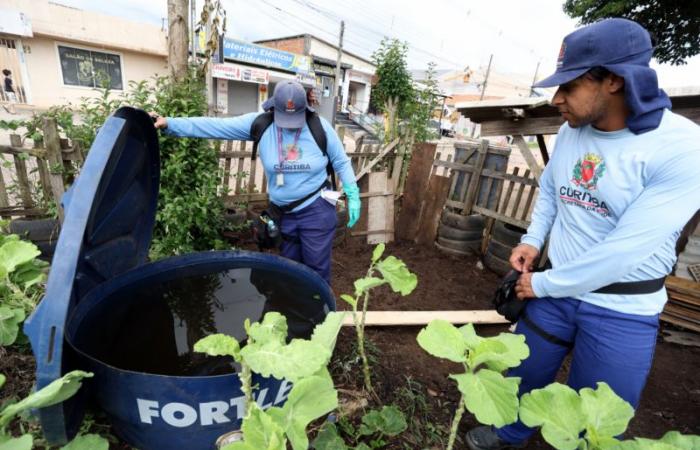New samples of mosquitoes with the dengue virus are found in traps in Curitiba
The traps don’t lie: the mosquito that transmits dengue is gaining ground in Curitiba. Last week, five new samples of Aedes aegypti mosquitoes tested positive for the DENV 1 virus, which causes the disease.
Since the beginning of the installation of the so-called mosquito traps, 12 inspection cycles have been carried out, in which 3,741 samples of Aedes aegypti were collected. So far, the analysis has identified 12 samples contaminated with the DENV 1 virus in the neighborhoods of Cajuru, Uberaba, Sítio Cercado, Bairro Alto, Campo de Santana and Tatuquara.
“Despite our efforts to contain the spread of the mosquito, the positive samples indicate that it is spreading. The population of all regions of Curitiba needs to take extra care”, said the municipal secretary of Health, Beatriz Battistella.
The Municipal Health Department (SMS) advises the population to reinforce Aedes aegypti control measures with a weekly inspection of backyards and open spaces to remove any and all places with accumulated water.
SMS installed 710 traps in the highest risk neighborhoods, according to previous mapping. Inspections are carried out every week, under the supervision of the Municipal Aedes Control Program.
The identification of contaminated mosquitoes allows for faster response actions to prevent and control the transmission of the disease in each region.
Monitoring
The objective of the program is to monitor in a more qualified and efficient way the presence of Aedes aegypti in the municipality’s territory, as well as identify the presence of mosquitoes contaminated with arbovirus viruses (diseases transmitted by mosquitoes).
In December 2023, before the explosion of dengue fever in the country, SMS began monitoring using mosquito traps and carrying out a PCR test on the samples collected.
“The mosquito uses any amount of stagnant water to lay its eggs, that is, from a soda cap, from a disposable cup on the floor to an open drum with accumulated rainwater”, recalls the coordinator of the Municipal Aedes Control Program , Tatiana Faraco.
In other words: it is necessary to look for and remove stagnant water in places such as drains and toilets that are rarely used, clogged gutters, water tanks without a lid or with the “thief” open.
The same care applies to pets’ water bowls that are not washed regularly, construction debris such as tiles and bathroom ceramics accumulated in the open.
The attention list includes tires, debris, useless objects, plant pot plates, untreated swimming pools, bottles stored over time, water tanks without lids, among others.
Mosquitrap
Mosquitraps are containers with water and synthetic attractants for pregnant female insects, as well as an adhesive to capture them. The captured specimens are sent for analysis of possible contamination.
The traps were installed in houses in regions with the highest incidence of the Aedes aegypti mosquito, according to maps constantly updated by SMS, which also uses drones in inspections and carries out cleaning efforts with the help of residents.






